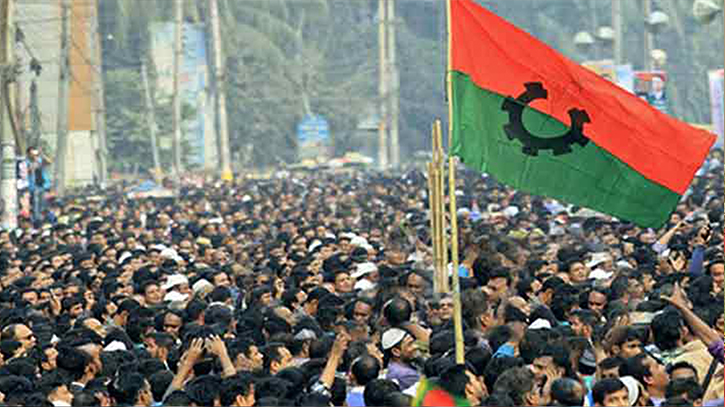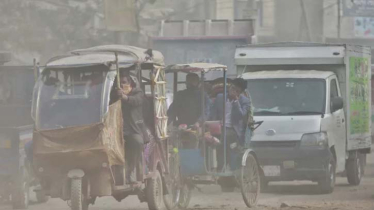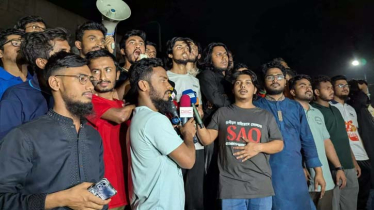
Photo: Collected
Following years of strained relations, BNP and Bangladesh Jamaat-e-Islami are leaning towards bolstering their strategic ties, intending to spearhead a more assertive anti-government campaign, according to leaders from both parties.
However, they said they would continue to maintain a cautious public distance between them to preempt potential criticism, counter negative campaigning by the ruling party, and avert misunderstandings with some alliance partners and the international community who have reservations about Jamaat.
For quite some time, there has been a noticeable gap between the BNP and its long-time ally Jamaat, especially since the BNP dissolved the 20-party alliance to carry out a simultaneous movement with many other parties, including some left-leaning ones.
However, some BNP leaders said this week they are making efforts to bridge the gap and unite both right and left-leaning parties to take to the streets with fresh vigour against the government.
BNP Secretary General Mirza Fakhrul Islam Alamgir recently articulated his party's position on the Islamist party, stating that while he does not endorse Jamaat-e-Islami's politics, he acknowledges its strategic approach as highly methodical, akin to that of the Communist Party.
Awami League General Secretary Obaidul Quader criticised Fakhrul's statement, asserting that it further solidifies BNP's perceived connections with the anti-independence Jamaat and communal evil forces.
Later, Jamaat issued a statement protesting Quader’s comments, yet notably remained silent regarding Fakhrul’s remark indicating a lack of support for Jamaat’s politics.
On 27 May, Jamaat sent seasonal fruits, including mangoes and lychees, as gifts to BNP chief Khaleda Zia and its acting chairman Tarique Rahman, signifying a potential renewal of ties with BNP.
The BNP and Jamaat came close to each other's during the 1991 national election, but their formal coalition was established in 1999. Since then, they have been together in their political journey. Starting with a four-party alliance and expanding to a 20-party coalition, they remained politically aligned until the dissolution of the 20-party alliance before the 12th national elections.
Following years of strained relations, BNP and Bangladesh Jamaat-e-Islami are leaning towards bolstering their strategic ties, intending to spearhead a more assertive anti-government campaign, according to leaders from both parties.
However, they said they would continue to maintain a cautious public distance between them to preempt potential criticism, counter negative campaigning by the ruling party, and avert misunderstandings with some alliance partners and the international community who have reservations about Jamaat.
For quite some time, there has been a noticeable gap between the BNP and its long-time ally Jamaat, especially since the BNP dissolved the 20-party alliance to carry out a simultaneous movement with many other parties, including some left-leaning ones.
However, some BNP leaders said this week they are making efforts to bridge the gap and unite both right and left-leaning parties to take to the streets with fresh vigour against the government.
BNP Secretary General Mirza Fakhrul Islam Alamgir recently articulated his party's position on the Islamist party, stating that while he does not endorse Jamaat-e-Islami's politics, he acknowledges its strategic approach as highly methodical, akin to that of the Communist Party.
Awami League General Secretary Obaidul Quader criticised Fakhrul's statement, asserting that it further solidifies BNP's perceived connections with the anti-independence Jamaat and communal evil forces.
Later, Jamaat issued a statement protesting Quader’s comments, yet notably remained silent regarding Fakhrul’s remark indicating a lack of support for Jamaat’s politics.
On 27 May, Jamaat sent seasonal fruits, including mangoes and lychees, as gifts to BNP chief Khaleda Zia and its acting chairman Tarique Rahman, signifying a potential renewal of ties with BNP.
The BNP and Jamaat came close to each other's during the 1991 national election, but their formal coalition was established in 1999. Since then, they have been together in their political journey. Starting with a four-party alliance and expanding to a 20-party coalition, they remained politically aligned until the dissolution of the 20-party alliance before the 12th national elections.
Messenger/Sourov








